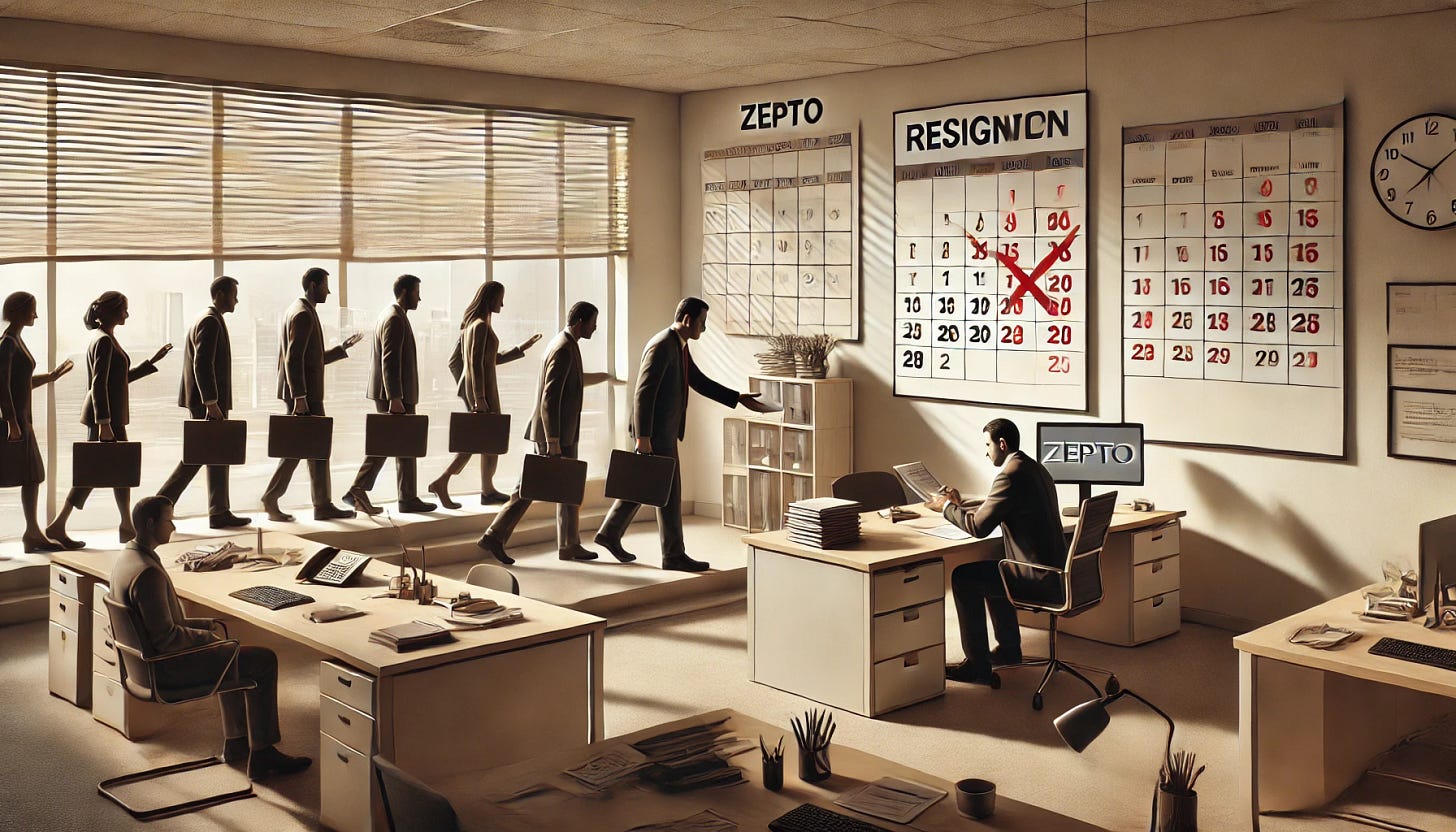Zepto Controversy: When Free Breakfast Becomes a Red Flag
a detailed breakdown
You’ve probably heard about companies offering free breakfasts, gaming rooms, or even napping pods to their employees. On the surface, these perks sound amazing, right? But what happens when these so-called “benefits” become a way to distract from deeper, systemic issues?
Let’s talk about Zepto. It’s all over the news for its alleged toxic work culture, and while the spotlight is on them now, this story is far from unique.
But before we start, remember:
Fridays are for finishing strong and starting something fun
Now, let’s get started…
The Zepto breakfast “solution”
At Zepto, according to the post, the workday is a chaotic marathon. Meetings are pushed to ungodly hours ( 2 AM), and employees are allegedly stuck in 14-hour shifts. HR’s solution? Free breakfast.
Sounds nice on the surface. But scratch a little deeper, and it becomes clear: this isn’t about generosity - it’s about getting people to show up earlier and stretch their work hours even further.
Let’s be real. When perks like these are dangled to compensate for basic mismanagement, they’re not rewards - they’re red flags.
The bigger problem
The breakfast debacle is just one piece of the puzzle. According to insiders, the toxic work culture runs deep.
Chaotic leadership: Meetings never start on time, and decisions are endlessly delayed.
Excessive workloads: Younger employees are overworked because senior professionals avoid this environment entirely.
Health ignored: Employees reportedly rely on stimulants to keep up with the workload, while health concerns are shrugged off.
Ethical grey areas: From customer profiling to misleading PR campaigns, the accusations highlight questionable practices.
All of this paints a troubling picture of a company prioritizing growth at any cost—sometimes at the expense of its people.
The worst part is this isn’t just about Zepto. Across industries, we see companies using perks to paper over systemic issues. Free meals, wellness programs, and swanky office spaces can be great, but they’re not a substitute for:
A culture of respect: Employees deserve work schedules that don’t drain them physically and emotionally.
Transparent leadership: When leadership operates on their whims (like starting work at 2 AM), it creates inefficiency and chaos.
Employee well-being: Genuine care for mental and physical health is more impactful than freebies.
Perks should add to an already healthy culture, not distract from its absence.
Why does this matter to everyone?
Toxic work environments don’t just hurt employees—they damage the business, too.
High attrition rates: Employees leave. Zepto allegedly loses 10 people a week.
Reputation risks: Public controversies can erode trust among customers and investors.
Missed innovation: Burned-out teams can’t bring their best ideas to the table.
For startups, culture isn’t just a “nice-to-have” - it’s foundational. And ignoring it is like building a skyscraper on shaky ground.
Now, let’s take a look at today’s top business news:
📌 Myntra starts 30-minute deliveries
Myntra has entered the fray with its new M-Now offering, promising 30-minute deliveries for fashion and beauty products. CEO Nandita Sinha highlighted the growing demand for instant gratification among Gen Z and millennial shoppers, who seek expansive wardrobes and faster styling solutions.
To achieve this, Myntra will leverage third-party dark stores and brand partners’ offline outlets for fulfillment, addressing the logistical challenges of delivering fashion quickly.
📌 Russian companies now want to invest in India
Russian President Vladimir Putin has expressed strong support for India’s Make in India initiative, highlighting plans for Russian companies to invest in the country. Speaking at the VTB Russia Calling Investment Forum, he drew parallels between India’s program and Russia’s import substitution efforts. He praised the Indian government under PM Modi for creating a stable, investor-friendly environment and cited Rosneft’s $20 billion investment in India as a key example.
📌 The authorities to issue green bonds worth Rs 1 crore
The National Highways Authority of India (NHAI) plans to issue ₹1,000 crore in green bonds in December, marking a first for the road sector. The funds will support eco-friendly initiatives on the Delhi-Mumbai Expressway, including tree plantations, animal underpasses, solar-powered streetlights, waste recycling, and rainwater harvesting. NHAI Chairman Santosh Kumar Yadav emphasized that the bonds aim to promote sustainable investments and reduce environmental impacts, offering long-term savings and lower emissions.
So, that’s it from me today for this week!
See ya 👋



